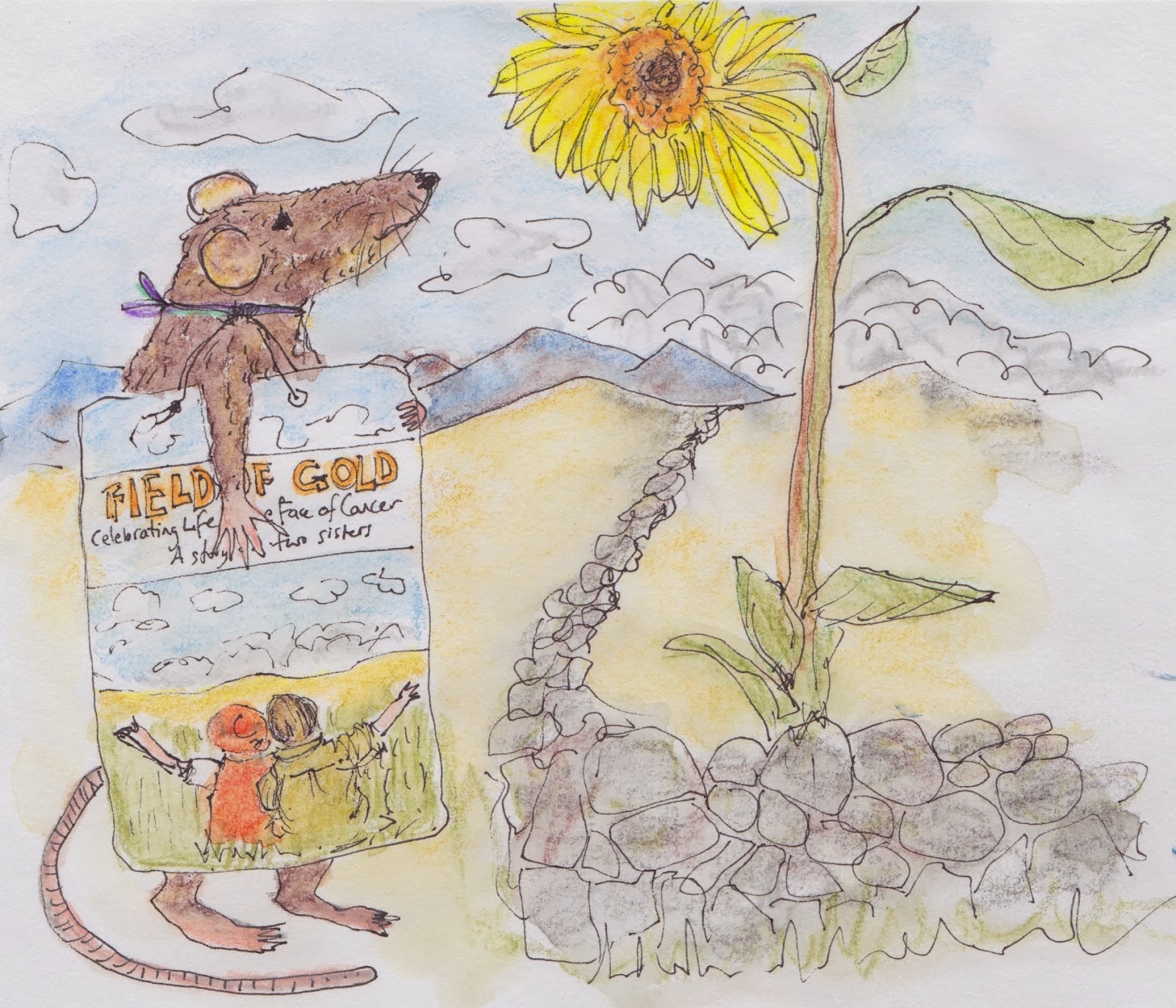Here's a thoughtful, appreciative review of
Fields of Gold published this week in the June 2014 online magazine for the New Zealand Transactional Analysis Association.
Big
sisters are the crab grass in the lawn of life. Charles M. Schulz
Once
in a while, if you are lucky, you cross paths with a book that is a treasure; one
that you know you will keep – to dip into time and again – because it moves you
or expresses something for you, of life, which has been difficult to put into
words of your own. For me, Fields of Gold is such a book.
It
is not possible to generalize the experience of what it means to be a sister or
to have a sister, let alone what is means to be facing a terminal illness,
because the experiences are so profoundly personal and so varied. This book,
however, gently entwines the individual and combined experiences of sisters Annie
McGregor and Pam Morrison through the last year of Annie’s life using a journal
– ‘a shared container’ – as a means of holding something precious to them both
about what it means for one sister to face letting go of life and the other
sister to face letting go of her as a loved, life-long friend and companion.
You
know full well, as I do, the value of a sister’s affections: there is nothing
like it in this world. Charlotte Bronte
It
is tempting to use clichés when we speak of death and dying. So often we are at a loss as to what to
say to express ourselves, restricted by our sense of inadequacy and fear of saying
or doing the wrong thing. Sometimes, however, when it is too hard to find the
right words for ourselves around grief, we recognize them elsewhere, the effect
being a release of emotions held in a place of vulnerability, thus permission-giving
and healing; a ‘yes, I know about that’ kind-of-experience. This book models
permission to live life fully to the very end in such a way as to give
expression to an array of emotions and experiences from joy, exuberance and hilarity
to tenderness, bewilderment, and sorrow, which add a richness to the tapestry
of threads that hold Annie and Pam together through the daunting prospect of the
most final of separations.
You
mess with my sister, you’re messing with me! Loretta Livingstone
While Fields of Gold is written from the personal perspectives of the writers, the
writing style is inclusive of the reader through its honesty and recognition
that all life experiences, from the moment of our birth to our death, impact on
us as relational beings and affect how we feel about ourselves and others. One
of the lovely aspects of this book is that it candidly models that it is not
only ok to be real to self and to other, but that by being real we grow so much
more fully into ourselves and stand with one another with a genuine experience
of authenticity and vulnerability that refines and enhances shared moments of
genuine recognition and consequently, intimacy.
If
you have a sister and she dies, do you stop saying you have one? Or are you
always a sister, even when the other half of the equation is gone? Jodi Picoult
Pam
and Annie stand together through the progression of Annie’s cancer with an
honesty between them that is heart-warming and real, enhanced by a shared love
of music, all things creative, a joy that comes from being with those who love
them best and a generosity that is inclusive, right to the end, making room for
others to be a part of the journey armed with whatever offerings they might
bring be they practical, spiritual, emotional or otherwise. It is a gift to
write with such candor, one to the other, and reflects the underlying strength
of their sister-to-sister relationship.
My
sister and I are so close that we finish each other’s sentences and often
wonder whose memories belong to whom. Shannon Celebi
I
imagine that Fields of Gold will appeal to a wide range of readers. Having
worked in a hospice for two years myself, I know the benefit of books as a
resource when people lose their way in the complexities of grief, again because
they can be permission-giving, putting words to experiences when words can be
lost. This book is also a lovely reflection of the relationship between sisters
and a wonderful recognition of the emotional and psychological strength that
can lie between two women who have known one another throughout a shared
lifetime.
I
would like more sisters, that the taking out of one might not leave such a
stillness. Emily Dickinson
Pam
expresses a hope at the end of the book “that others in relationship will be
encouraged, when spoken words are not enough, to find a beautiful book, pick up
a pencil, and take turns to write.” I have encouraged our youngest daughter,
whose partner recently underwent major transplant surgery, to do just that. She
was immediately engaged by the idea and has asked to read the book.
I
am sure she will not be disappointed.
Sue McMenamin
 |
| A fanciful stalk from a field of gold and the possible reappearance of Ratty. |





































